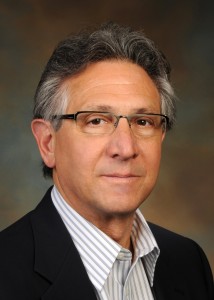14/08/2014
Scripps president resigns after faculty revolt
The president of the Scripps Research Institute intends to leave his post, according to a statement from Richard Gephardt, the chair of the institute's board of trustees. The announcement came in the wake of a faculty rebellion against the president, Michael Marletta, who had attempted to broker a deal in which the research lab, in La Jolla, California, would be acquired by the Los Angeles-based University of Southern California (USC) for US$600 million.
In the statement, posted on 21 July, Gephardt said that Marletta "has indicated his desire to leave" Scripps and that the board "is working with Dr Marletta on a possible transition plan".

|
Scripps Research Institute president Michael Marletta resigned after clashing with faculty over a proposed merger.
SCRIPPS RESEARCH INSTITUTE |
Scripps faculty members see Marletta's departure as a victory. They had been angered by the terms of the USC deal, which was scrapped on 9 July, and by the fact that Marletta did not consult with faculty during his negotiations with USC. Faculty members told the Scripps board of trustees earlier this month that they had an almost unanimous consensus of no confidence in Marletta.
"I think we are more optimistic than we have been in many years, because we feel like we have some control over our own fate," says Scripps biologist Jeanne Loring.
Loring said that at a meeting with a majority of Scripps faculty on 21 July, Gephardt indicated that the board had thought that Marletta was communicating with the faculty as he negotiated the USC deal. Gephardt also promised that faculty would involved in choosing Marletta's successor.
Whoever replaces Marletta must find a way to close a projected $21-million budget gap this year left by the contraction of funding from the US National Institutes of Health (NIH) and by the virtual disappearance of support from pharmaceutical companies, who had provided major support for Scripps until 2011.
How Scripps solves its funding issue will be watched by other independent institutes, which have been hard hit by the contraction in NIH dollars. Scripps' neighbour institutes have brought in hundreds of millions of dollars in philanthropy, and many involved see that as part of the solution for Scripps as well. But, Loring says, "the funding that other institutes have got from philanthropy is going to be a short-term solution, because even though it seems like an awful lot of money, they have to spend it, so they will eventually be facing the same issues."
Follow Erika on Twitter: @Erika_Check.
Fonte: NATURE NEWS BLOG
|